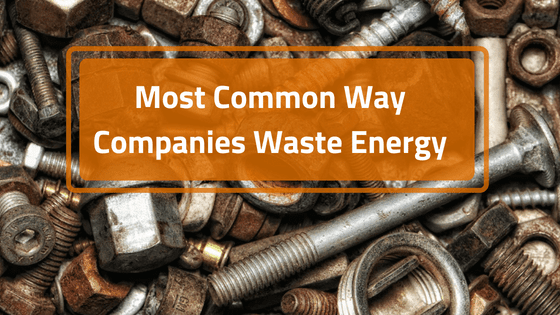HVAC systems deliver some of the best solutions for managing the summer heat and winter cold effectively. However, these systems represent a major source of energy consumption, accounting for about 35% of the total energy used in commercial buildings. Considering this aspect, a simple way to reduce energy usage and decrease your utility bills is to identify and address the causes of energy waste in your HVAC system. This blog post discusses the most important ones.
Obsolete HVAC Systems or Components
Sometimes, energy waste is the direct result of running obsolete HVAC systems or components like compressors that have reached the end of their life. Using old HVAC equipment often leads to exorbitant energy consumption, waste, as well as high maintenance and repair costs.
The average life span of an HVAC system and compressor is between 10 and 15 years. If a commercial HVAC system is more than 10 years old, replacing it with a new unit is often more economical in terms of energy consumption, maintenance fees, and repair costs. Additionally, given that today’s SEER ratings range from 14 to 18, the HVAC systems available on the market nowadays are significantly more energy efficient than the systems built a decade ago.
If only the HVAC compressor needs replacing, a remanufactured compressor is often the best option. That’s because a remanufactured compressor offers the same functionality, performance, efficiency, reliability, and durability as a new compressor, but at a much lower initial cost.
If you’re looking for a compressor replacement, you might want to consider compressor designs equipped with advanced technologies, such as the unloaders or inverter technology. Because these technologies enables compressors to efficiently respond to varying thermal loads throughout buildings—which means that the HVAC systems can provide enhanced thermal comfort as well as higher levels of control and efficiency—the inverter technology is becoming more widely available and more commonly used in small and medium-sized commercial applications.
Lack of Regular Preventive Maintenance
Routine HVAC system maintenance is one of the things that can help building owners and managers improve the energy efficiency of their systems. Dirty air filters, for instance, can cause an HVAC unit to work harder in order to maintain the indoor temperature at the desired level. According to recent research, HVAC systems with dirty air filters can consume up to 15% more energy. As well, dirty evaporator and condenser coils can increase the energy consumption of an HVAC compressor by up to 30%.
Additionally, lack of adequate maintenance can lead to refrigerant leaks and air leaks in different parts of an HVAC system. This can cause further complications, including decreased efficiency and energy waste.
Considering all these aspects, having your commercial HVAC system checked by a professional technician regularly is a surefire way to keep it operating at peak performance and save energy.
Lack of Energy-Saving Devices
Retrofitting existing commercial HVAC systems is another successful way to significantly improve their energy efficiency. Furthermore, system components equipped with new technologies and devices like economizers, programmable thermostats, sensors, and “dampers” can help you remove much of the burden of tailoring temperature and humidity settings to meet varying thermal loads at different times of the day.
Because these devices can make your HVAC system automatically operate at higher or lower temperatures and at different speeds, depending on the season and building occupancy, they can save you a lot of money in the long run.
Several methods of retrofitting a commercial HVAC system include:
- replacing the compressor, if required;
- installing digital economizers, programmable thermostats, sensors, and “dampers”;
- adding condenser fan controls.
Well-maintained, large commercial HVAC systems that get a lot of use are usually the best candidates for retrofitting. However, the decision on whether to optimize a system or to replace it with a new one also depends on its overall condition and life expectancy.
Another important consideration is that outdoor temperature variations have a direct impact on the amount of energy an HVAC system needs to consume in order to maintain a certain temperature and humidity levels throughout a commercial facility.
When it comes to improving the energy efficiency of a commercial HVAC system, optimization is an ongoing process, which should include monitoring as well as adding or replacing parts as required. An experienced HVAC technician is also essential to ensure long-term successful outcomes.
If you’re looking for energy saving solutions for your commercial HVAC system, we can help. Although there are many ways to reduce energy losses in HVAC units, specific compressor designs and technologies can significantly improve the performance and efficiency of a commercial HVAC system. To learn more about the latest developments in compressor technology, please contact Compressors Unlimited today!












